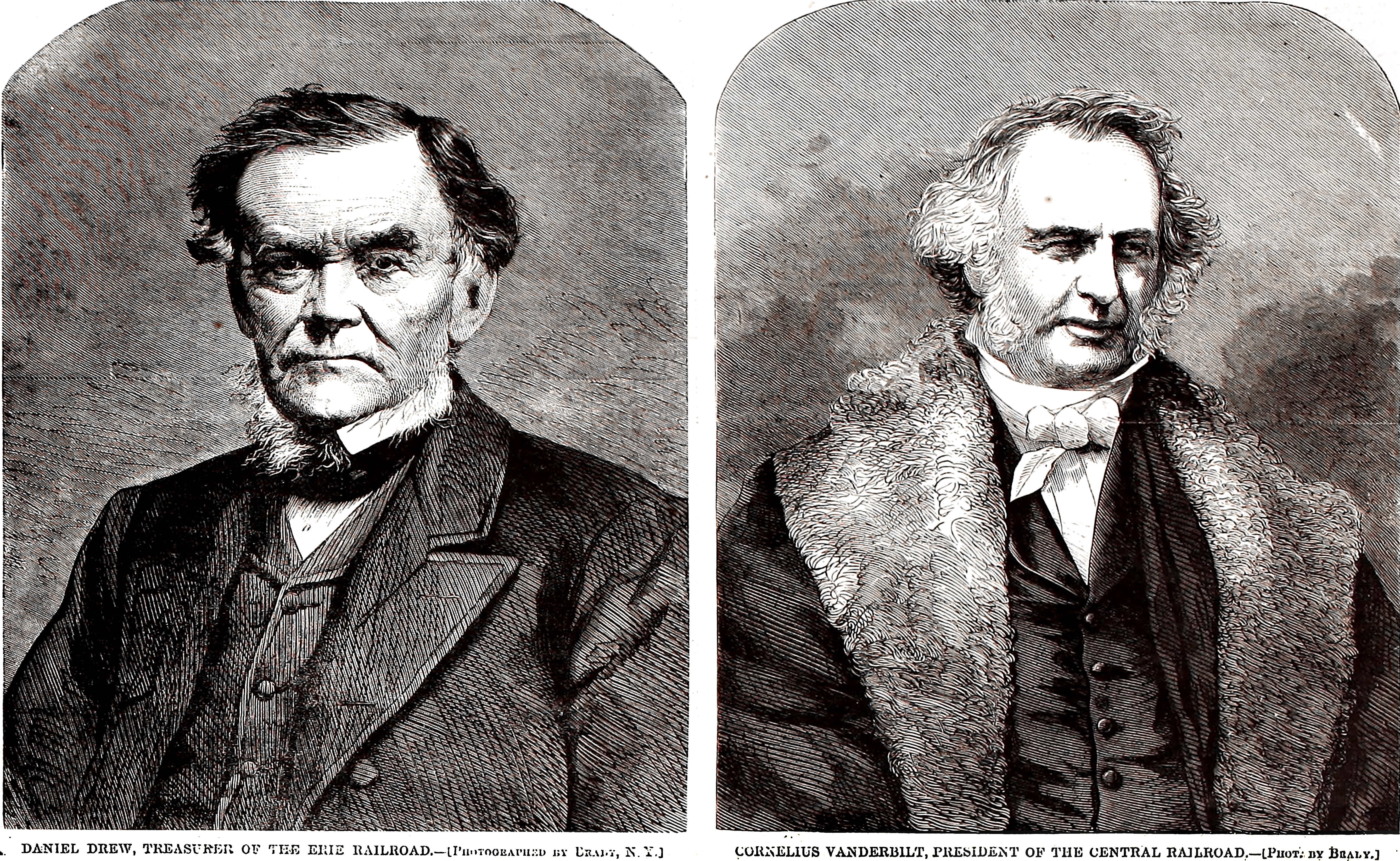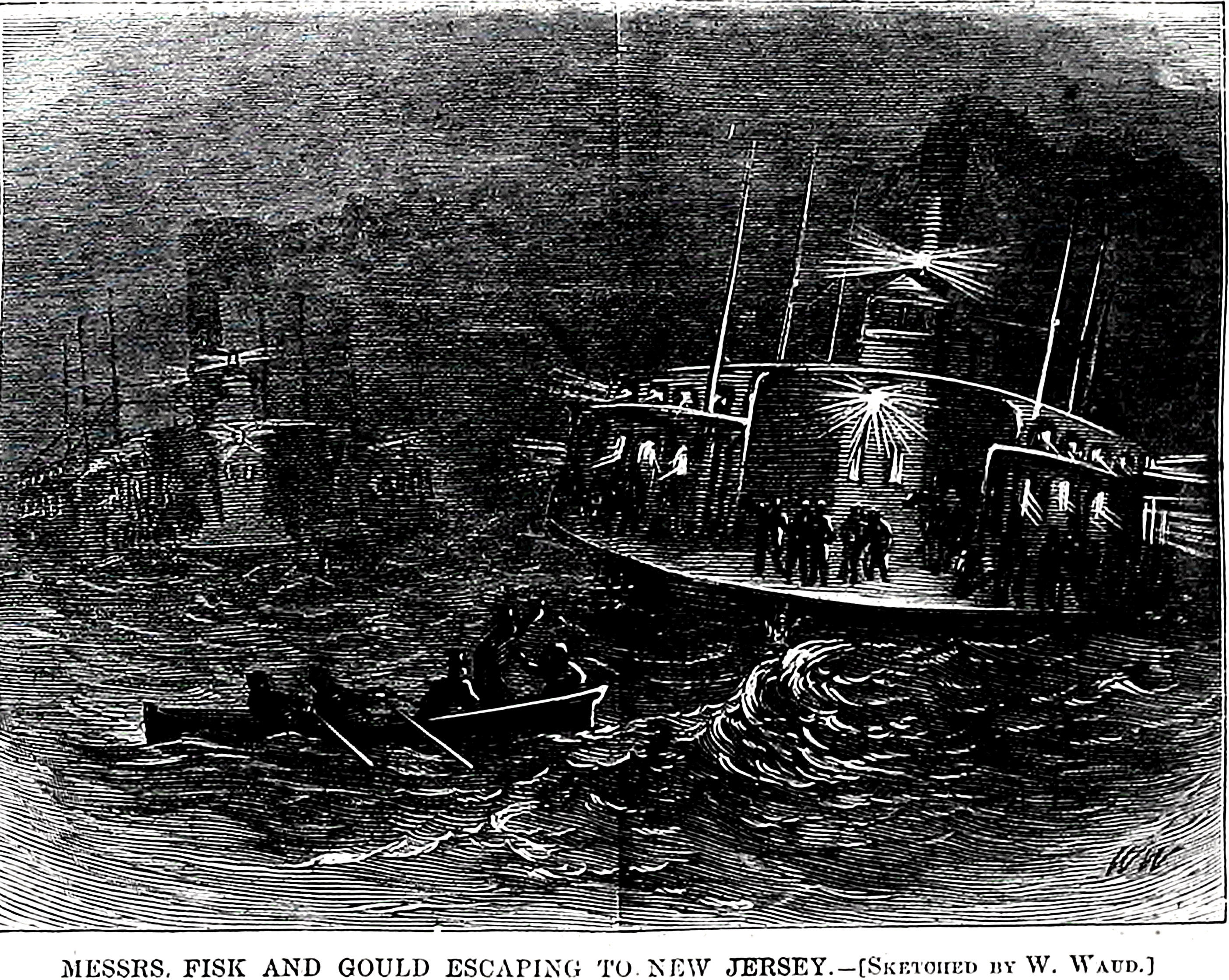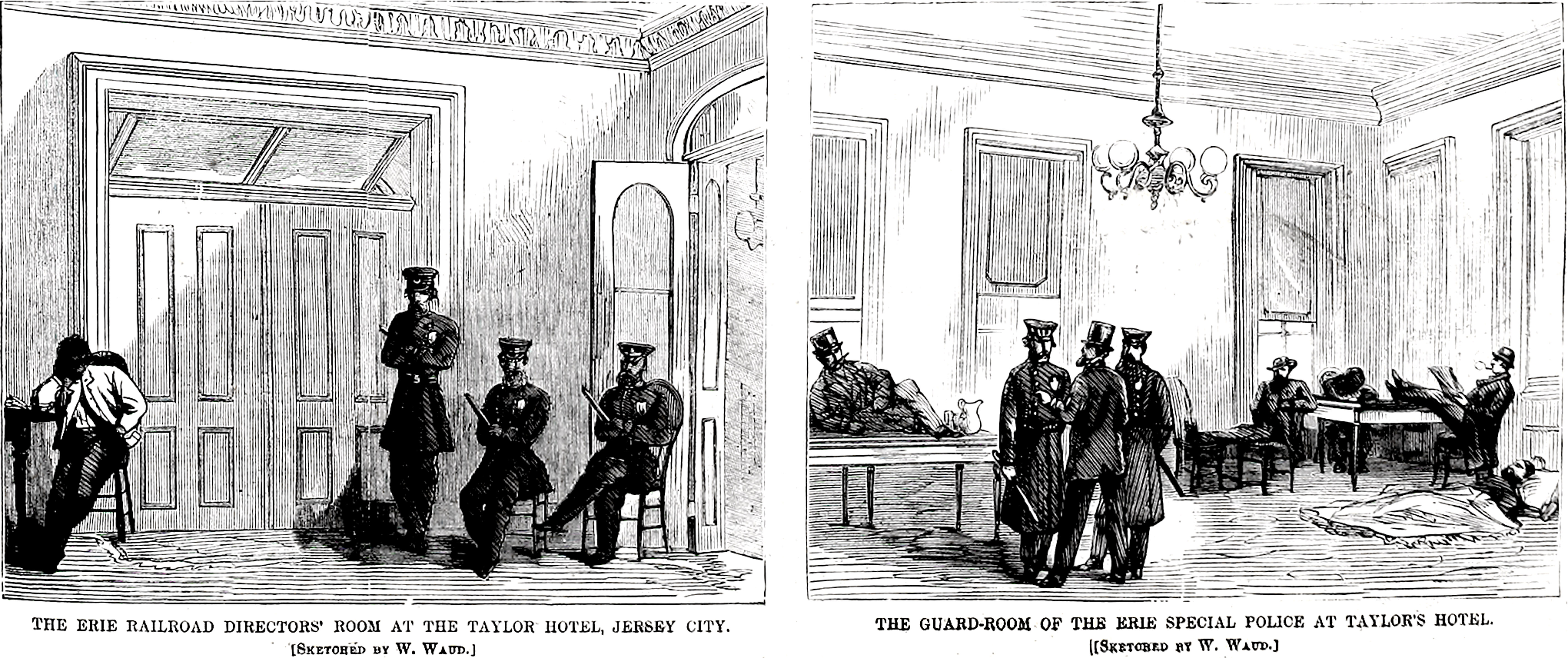Harper's Weekly, April 11, 1868
The Great Railroad War.

There is no more singular chapter in all the varied romance of Wall Street than the facts in the remarkable contest now going on between the rival New York Central and the New York and Erie Railroads to secure the business of carrying the immense quantities of freight which comes from the West to New York by these two routes. The wealth and importance of the contesting roads; the prominence of the two men who control them and who direct this war; the singularity, not to say the illegality, of the judicial proceedings in the case; the amount of money involved in the quarrel; the numbers of brokers, bankers, and speculators engaged, pecuniarily, in it ; the vigor and boldness of the effort to take possession of the Erie road the not less bold manoeuvre of a change of base to New Jersey soil —in short, all the circumstances of the rivalry make it one of the strangest “stories of the street.” It is related fully in our editorial columns.
The chief contestants in this “fight” are remarkable men. Both are self-made, in fortune and education; both men of great energy and determination, and both men of colossal fortune. Mr. Vanderbilt, the eldest of the two, is now seventy-three years of age, but strong and healthy as a man of fifty. Mr. Drew is now seventy-one years of age, and enjoying vigorous health. Both made their great fortunes — Mr. Vanderbilt is said to be worth $40,000,000 and Mr. Drew about $20,000,000 — in the steamboat business, and have only turned their attention to railroading in their old age.
Outside of business matters the two men are in tastes, habits, and character very different. Mr. Drew is rather of a quiet, retiring disposition, and is fonder of his country estate than the city; while Mr. Vanderbilt insists on city life and city associations. Mr. Drew is a, devout Methodist, and not a little of his wealth has been spent in the erection of schools and educational institutions. Mr. Vanderbilt's chief delight is in horses, and he drives fast teams every day in the week, and can be seen regularly “on the road.”
Our illustrations are portraits of the two principal leaders in the fight, and three others showing an incident of the flight to New Jersey, and scenes at the hotel in Jersey City, in which the Drew forces are besieged. On the night of March 15 Messrs. Fisk and Gould, two of the Erie Railroad directors, were dining at Delmonico's, when they heard that warrants had been issued for their arrest. They immediately jumped into a carnage and drove to the foot of Canal Street, where an officer of the steamer St. John, lowered a boat and, with two deck, hands, attempted the passage of the North River in a dense fog. Mr. Fisk directed the men to head up the river, to keep out of the track of the ferry-boats; but the fog was so thick that they lost their reckoning and rowed for some time in a circle. They were at one time nearly run down, only saving themselves by the vigorous use of their lungs. Once they escaped from one ferryboat only in time to see another bearing down upon-them. Ultimately they determined to endeavor to get some assistance, and for this purpose hailed a Pavonia ferry-boat; but could get no response, and therefore made a clutch at the supports of the guard, and were drawn so near to the wheel as to nearly wash the whole party out of the boat. They however saved her from swamping, and climbed on board, arriving shortly after at Jersey City, safe and sound, but thoroughly drenched.

The Taylor Hotel in Jersey city is used as the quarters of the Drew party, and one of the rooms is now known as the “Directors' Room.“ Our view is of the exterior of this room. It is guarded night and day by police, who are sufficiently impressed with the solemn duty that has devolved upon them, and are more reticent than gentlemen of the profession usually are. The favored few, who pass these portals are received by Mr. Fisk with such good-humored cordiality that it is difficult to imagine that he and his brother directors are in a state of siege. “The Guard Room” was formerly the ladies' parlor of the hotel. A force of about seventy-five specials are on duty at the hotel during the night, and occupy when off duty this apartment, where they are in waiting to prevent any raid which the “Vanderbilt party” may attempt to make.

The Great Railroad War, Harper's Weekly, April 11, 1868 Pages 237-238. (PDF)